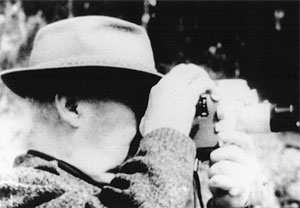 |
||||||
|
HI RES PRESS PHOTOS
ALL PRESS
SF Chronicle Datebook, March, 2024 Local News Matters, March 2024 Local News Matters, November, 2022 The New York Times, March, 2022 San Francisco Chronicle, June 2012 La vida nos estremece October 2011.pdf The Village Voice, October 2010 This Week in New York blog, October 2010 Tribeca Film Institute blog, October 2010 Senses of Cinema, Issue 53, January 2010 San Francisco Chronicle, October 2009 San Francisco Bay Guardian, November 2005 San Francisco Chronicle, November 2005 San Francisco Weekly, November 2005 San Francisco Examiner, October 2005 Scene 4 Magazine, October 2005 San Francisco Bay Guardian, March 2005 Contra Costa Times, April 2004 San Francisco Bay Guardian, November 2002 Vogues Hommes International, Spring/Summer 2002 (pdf) Miami New Times Review & Interview 2001 San Francisco Chronicle Review, 2001 San Francisco Examiner Review, 2001 San Francisco Bay Guardian Review, 2001 San Francisco Chronicle Profile, 2001 Movie Magazine International Review, 2001 The Stranger (Seattle) Review, 2001 San Francisco Weekly cover story, 2000 New York Times Profile, August 2000
Press
NEW YORK TIMES January 19, 2006 'Decades Later, Haunted by the Loss of a Little Brother'
By Virginia Heffernan "Phantom Limb" can only be called - deep breath - an art film. A dirgelike documentary about the death of a child, the program appears on Cinemax tonight, part of that channel's "Reel Life" series. The film is an impressionistic, anti-verité project, which suits the melancholy material; much of this meditation on grief is rendered soundlessly, using archival images, intertitles and the lonesome music of Arvo Pärt. Art on television - in small doses, it's surprising how easy it goes down. In a muted overture, the filmmaker Jay Rosenblatt tells the story of his brother, Eliot, who died in 1964, with expository graphics. "My little brother died when I was 9 years old," reads one title card. "He had been sick for two years." These pain-suffused declaratives are juxtaposed against stylized black-and-white archival film that shows a boy in a sickbed. Soon after, a figure in a white coat unfolds a towel with exaggerated precision and uses tongs to extract stainless steel scissors from it, while an authoritative voice describes how to handle sterile medical instruments. It looks like an instructional film from the 50's. A title card comes up: "He died from an infection after surgery." Along with the sad, almost exhausted suggestion of malpractice, another unuttered sentence is implicit: no further information is available. Mr. Rosenblatt, who had been embarrassed by his brother's steroid-thickened appearance during his medical treatment (for what, we never learn), imagined that his brotherly resentment and teasing had caused Eliot's death. He began nightly rituals to atone: first, he prayed for forgiveness, and then he held his breath in hopes of bringing his brother back. Both rituals failed, but - and this is the mystery the film beautifully traces - Mr. Rosenblatt's childish efforts of penitence and even resurrection didn't fail entirely. In sections with titles like "Rage" and "Confusion," Mr. Rosenblatt dramatizes the various ways his anguish refracts. The section titles evoke Elisabeth Kübler-Ross's controversial stages of grief, while a late section called "Advice" makes clear the filmmaker's response to the famous grieving protocol. As a man shears a squirming sheep down to its pink hide, a woman's voice intones, "Grief does not proceed in orderly, predictable stages." The sheepshearing is the most arresting sequence in this intensely visual film. I'd never seen a shearing, and I watched this slow-motion, densely colored passage of the film several times. The shearer, a muscled man in a blue tank top who looks more like a roustabout than a shepherd, secures the sheep between his legs, using his elbows, knees and massive arms to shave it; man and animal become entwined, and the process is weird and spellbinding. Its relation to the sensible and even hopeful advice on grieving is not plain, but there's something aesthetically compatible in this section's narration and images. Other sections - "Depression" shows street scenes apparently from the Great Depression; "Shock" shows lab mice getting electrical shocks - are less successful: they're either slightly too literal or slightly too cute. But only slightly, and the effective sections more than make up for it. A final sequence shows a placeless maternity ward, in which dozens of squirming newborns are all laid together on a single table and sprinkled with baby powder as if they were doughnuts. A close-up on the writhing crowd shows two babies who, forced into this proximity, turn to kissing. It's half desperate and half buoyant. |
||
